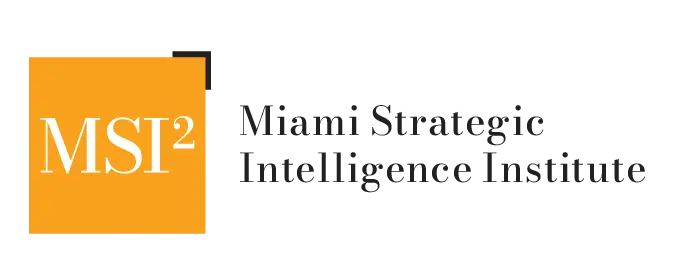11 Jun Between East, West, and Internal Order: Argentina’s Strategic Triple Crossroads
By,
Jesús Romero. Co-Founder & Senior Fellow, MSI²
Introduction. Argentina stands at a defining moment. While several Latin American countries deepen their alignment with China through the CELAC, President Javier Milei is emerging as a key figure in hemispheric conservatism, with his upcoming participation in CPAC Latino 2025 in Miami.
Amid these external tensions, the country also faces a pressing internal challenge: restoring order, ensuring security, and creating the conditions needed to attract technological and strategic investments.
Three critical fronts—geopolitical, ideological, and institutional—are converging. The real question is not only what path Argentina will choose, but whether the country can rebuild from within to play a leading role in the new global order.
CELAC and China: A Fragile, Infiltrated, and Strategic Bloc
The recent CELAC-China summit in Beijing showcased China’s determination to expand its influence in Latin America. However, it also exposed the structural weaknesses of the Latin American bloc. It suffers from a lack of cohesion, mutual distrust among member states, and alarming infiltration by criminal networks and state-level corruption that threaten its credibility as a geopolitical actor.
CPAC Miami: Milei, Trump, and the New Freedom Axis
In contrast to China’s outreach, the Argentine government is repositioning itself geopolitically toward the United States and Europe. President Milei’s participation in CPAC Latino 2025 in Miami confirms this realignment. There, he will seek to solidify his leadership within a new hemispheric architecture based on economic freedom, institutional order, and resistance to authoritarian populism.
Milei vs. Congress: An Executive Without a Legislative Base
One of Milei’s most serious structural weaknesses is the lack of legislative support. His administration is in the minority in both chambers, while Kirchnerism holds the largest single bloc in the Senate. This forces Milei to choose between two politically costly paths: negotiate with factions he has labeled the “caste” or veto popular laws that Congress passes with broad support.
The recent case of the pension reform bill is emblematic. The bill includes increases for retirees and a moratorium for those who haven’t completed their contributions. Milei has already announced he will veto the measure if it passes the Senate. But this creates an electoral dilemma. More than 5.3 million retirees earn less than 400,000 pesos per month. Denying them direct benefits could carry a high political cost for an administration that urgently needs to broaden its base of support (Infobae, 2025).

Risk of Strategic Paralysis if Legislative Elections Are Lost
If the ruling party fails to gain seats in the 2025 midterm elections, critical investments will not materialize. Newly elected legislators will take office on December 10, and Milei will be left with only two years under increasing social pressure.
Without structural reforms, legislative backing, or legal guarantees, there will be no conditions for job creation or reserve accumulation. The country will remain dependent on political support from the United States, particularly if Donald Trump returns to the White House, and on IMF financing.
In this scenario, the narrative of change may wear thin before it yields tangible results. The political capital Milei has built could dissolve into social frustration and institutional gridlock.
The Argentine Diaspora in Florida and Republican Economic Diplomacy
Florida is emerging as a key geopolitical player. It is home to a large Argentine community with electoral influence in both the U.S. and Argentina. Florida Governor Ron DeSantis and Republican lawmakers could become strategic allies, facilitating trade missions, investment in energy and technology, and productive bilateral cooperation.
The U.S. and Strategic Investment in Future Technologies
Argentina represents an ideal platform for channeling U.S. investment into future-oriented sectors. With North American infrastructure and capital, the country could advance in clean technologies, artificial intelligence, biotechnology, and cybersecurity, reinforcing the Western technological bloc in the face of Chinese penetration in Latin America.
Conclusion: A Sleeping Giant Poised to Wake
Argentina is not doomed to irrelevance or collapse. It possesses natural resources, human capital, and now a leadership determined to break from the past. But success will depend on the country’s ability to confront the geopolitical threat posed by China’s expansion in Latin America, solidify a results-driven strategic alliance with the West, and restore internal order through sustained structural reform.
Argentina is facing what may be its last structural opportunity of the decade. Its future will not be decided in speeches, but in legislative seats, enacted reforms, and real investment.
References
CLACSO. (2022). The Lithium Triangle concentrates 68% of the world’s lithium in three Latin American countries. https://www.clacso.org/en/el-triangulo-del-litio-concentra-el-68-del-litio-en-tres-paises-latinoamericanos/
Ministry of Agriculture, Livestock, and Fisheries. (2021). Genetically Modified Crops. https://www.magyp.gob.ar/sitio/areas/biotecnologia/conabia/_pdf/Cultivos_GM.pdf
YPF. (2025). Vaca Muerta Challenge – Unconventional Oil and Gas. https://desafiovacamuerta.ypf.com/
Infobae. (2025, March 19). Nearly 5.4 million retirees and pensioners earn less than 400,000 pesos per month. https://www.infobae.com/politica/2025/03/19/casi-54-millones-de-jubilados-y-pensionados-cobran-un-haber-menor-a-400-mil-por-mes/
The opinions expressed in this article are those of the author and do not necessarily reflect the views of the Miami Strategic Intelligence Institute (MSI²).
